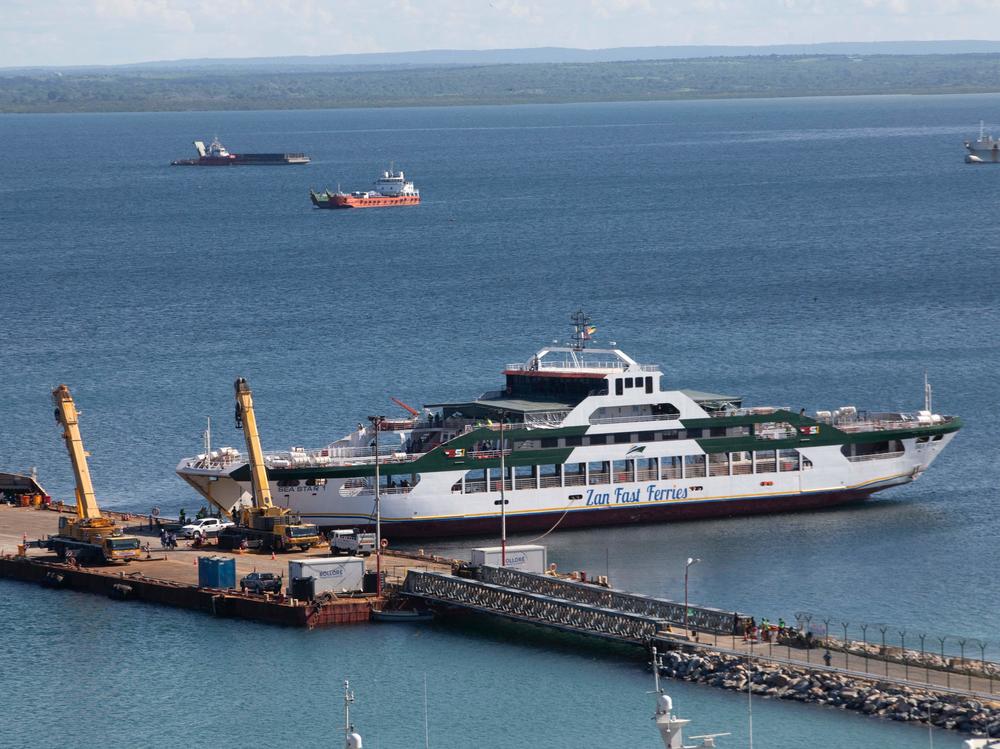Section Branding
Header Content
Insurgents Kill Dozens In Attack On Natural Gas Complex In Mozambique
Primary Content
Days of fighting in a key city in Mozambique's north have left dozens of civilians dead as security forces battled to turn back an assault by suspected Islamic State-linked insurgents.
Hundreds of militants last week attacked Palma, a northern coastal city in Cabo Delgado province that acts as a hub for a vast liquefied natural gas project worth tens of billions of dollars. The project, scheduled for completion in 2024, is led by the French energy group Total, and includes industry partners from India, Japan, Mozambique and Thailand.
At one point in last week's fighting, as many as 200 foreign workers were reportedly trapped between security forces and the insurgent group. Hundreds of people were being evacuated by boat to the port city of Pemba, about 150 miles south, a diplomat and an aid worker told Reuters.
There has been no claim of responsibility for the assault, and the government has not identified the assailants by name or group. However, the attackers are widely believed to be from a group that locals refer to as al-Shabab, although the insurgents don't appear to have any direct link to the Somalia group of the same name.
Last year, Air Force Maj. Gen. Dagvin Anderson, commander of the U.S. Special Operations Command Africa, said the U.S. believes that the local al-Shabab group in Mozambique has links to ISIS.
Since 2017, infrequent but violent raids by Islamist militants have left more than 2,600 people dead – half of them civilians, the Armed Conflict Location & Event Data Project says. At least 670,000 more have been displaced in the four years of conflict, according to the U.N. Office for the Coordination of Humanitarian Affairs.
A spokesman for Mozambique's defense department, Omar Saranga, told journalists Sunday that seven people whose convoy was ambushed as they tried leaving the Amarula Lodge hotel in Palma were among the dead.
"On March 24, a group of terrorists penetrated ... the headquarters of Palma village and unleashed actions that culminated with the assassination of dozens of defenseless people," Saranga said.
Days after the fighting started, security forces were still trying to "eliminate some pockets of resistance," he said.
Last week, Human Rights Watch quoted witnesses in the city as saying they saw bodies on the streets and that militants were firing indiscriminately at people and buildings.
"Al-Shabab fired on civilians in their homes and on the streets in Palma, as they tried to flee for their lives," said Dewa Mavhinga, Southern Africa director at Human Rights Watch. He called on Mozambique to protect civilians "and bring all those responsible for abuses to account."
A South African woman, Meryl Knox, told Reuters that her son, Adrian Nel, had died in the ambush on the convoy. She said her husband and another son hid his body in the bush until the following morning.
The U.K.'s The Times newspaper says a British contractor was also among those killed in the convoy ambush. It said at least 40 expatriates in the town remain unaccounted for.
The Cabo Delgado liquefied natural gas project has been a recurring concern due to the fragile security situation in the region.
Paris-based Total had to shut down construction on its $20 billion complex there in January, withdrawing its staff due to security concerns.
The company had just announced it would restart work after receiving security guarantees from the government when last week's attack occurred, forcing it to reconsider once again. On Monday, Total cited security concerns in shutting down the project once again.
Copyright 2021 NPR. To see more, visit https://www.npr.org.

